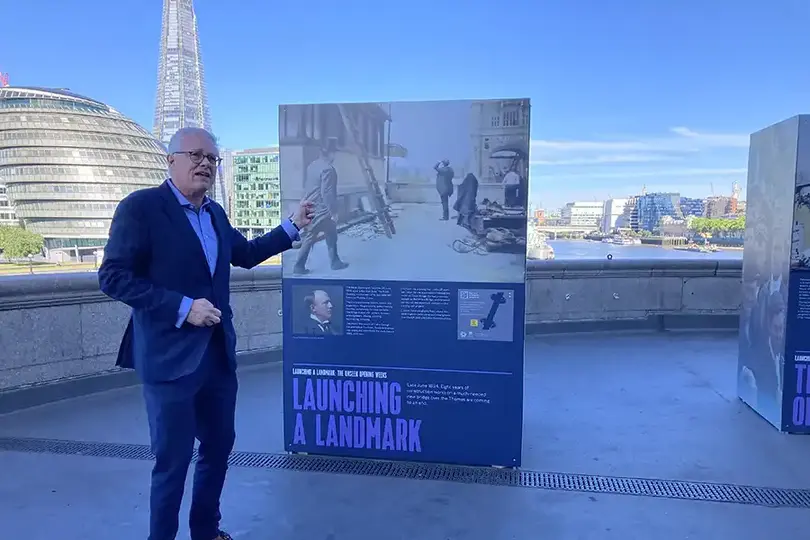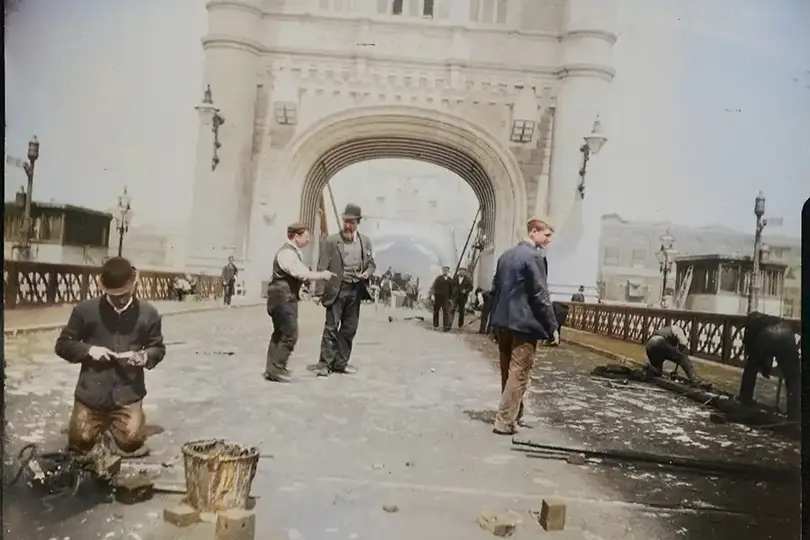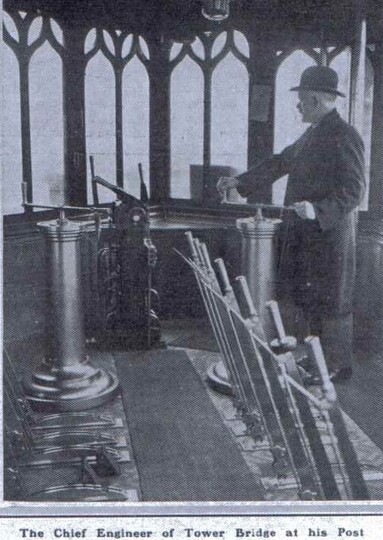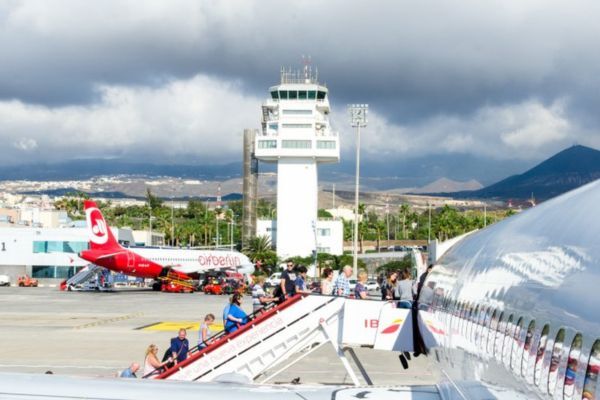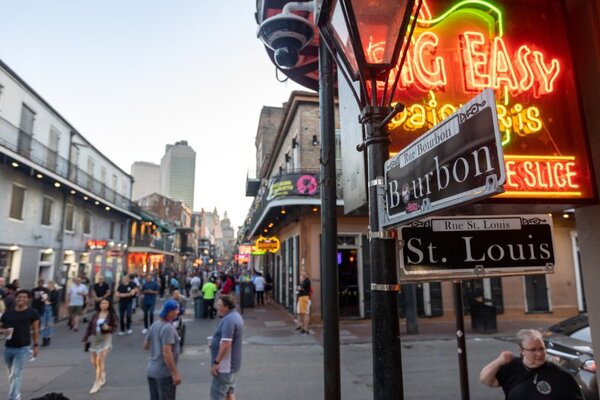My family link to Tower Bridge's new 'accessible' exhibition
London’s much-loved landmark is celebrating its 130th anniversary with a new open-air gallery, displaying never-before-seen photos of workers on the bridge and the public opening
A collection of 18 postcard-sized photos was recently discovered by the Molineux family, descendants of Tower Bridge resident engineer, Edward Cruttwell, who oversaw its construction – and from tomorrow they will be displayed on monoliths in a free, open-air exhibition that spreads out across the Bridge.
Patrick Molineux, Cruttwell’s great grandson, who discovered the photos, said: “My mother had stored the photos for decades in an archive box, and we were pleasantly shocked to discover that they’d never been seen publicly. It’s always been a source of pride for our family to have such a connection to an icon like Tower Bridge so we couldn’t quite believe that we’d discovered such a piece of history.”
Dirk Bennett, exhibition development director at Tower Bridge, added: “I almost fell of my chair when these photos were handed to me – I had goosebumps. We know a lot about the royal opening of the bridge on 30 June 1894 but we didn’t have much on the public opening just weeks before.”
The “Launching a Landmark: The Unseen Opening Weeks” exhibition shows workers engaged in final preparations ahead of the opening, such as laying the floor, painting and fixing snagging. They also show the crowd of Londoners, an estimated 140,000, who turned up for the public opening.
“They took time off work on a Monday morning and they took the Bridge into their hearts,” said Bennett.
“The photographs tell so many stories and are very much of their time,” he adds. “It’s a crowd of mostly white men – there are very few women. In Victorian fashion, hats were a status symbol, so we see the labourers wearing flat caps, the office clerks wearing bowler hats and the engineers and architects in their top hats.”
The Bridge’s exhibition team added colour to a selection of the photos, breathing new life into the characters and scenes depicted. Visitors can also make use of QR codes to access an augmented reality experience that shows the photos superimposed in the positions they were originally taken on the Bridge.
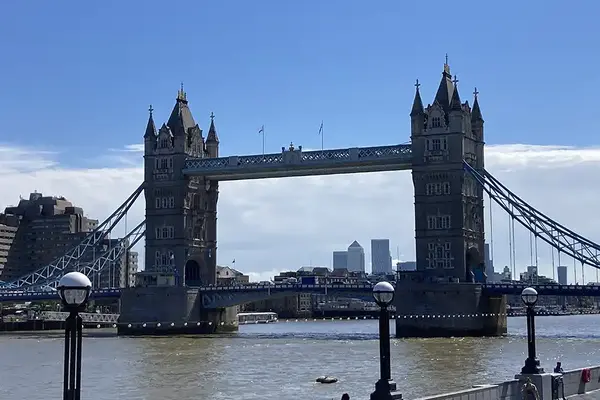
Drea Lee, marketing manager, Tower Bridge, said the free, fully-accessible exhibition was the attraction’s first foray into more public realm work.
“We are in the first year of a 15-20-year strategy called Tower Bridge in Motion. Our long-term development plan revolves around the core pillars of STEM (Science, Technology, Engineering and Maths), sustainability and EDI (Equality, Diversity and Inclusion).
"We really value our domestic and international markets, and we want to make sure all our audiences, including the trade, can engage with us. As London’s defining landmark, there’s also a lot more we could and should be doing to support our hyper-local, deprived communities.”
Last year Tower Bridge had a record-breaking year, with just shy of one million visitors. Lee said the attraction was now working off Ventrata, the same API ticketing system used by the Empire State Building, and that smaller operators were welcome to contact the groups support team.
The open-air exhibition will remain until 30 September, and the website has also been updated with fresh, historical insights about the opening.
'Check your lofts for long-lost photographs'
Exhibition development director Dirk Bennett emphasised just what a unique landmark Tower Bridge is, and the affection that people have for it, writes Katherine Masters.
Whether you've been on a cruise ship sailing through its open jaws, run in the London Marathon across it, or simply walked across it on a sunny day, I feel we can all identify with that sentiment. And his words struck a particular chord with me, as my great grandfather was James Gass, an assistant engineer for Tower Bridge, and living in such close proximity to his place of work defined my nana’s childhood.
The family connections continue… James’ brother, my great, great uncle was John Gass, bridgemaster (1896-1930) and John’s daughter Laura was one of only three women with a record of employment at the Bridge in the early days – she was an office clerk in the 1930s. It felt rather poignant viewing the newly discovered photos knowing my ancestors were a part of it all.
Sadly my family have not unearthed any historical treasures in our loft, to assist with Dirk’s research, but he remains hopeful, given the number of steel workers and riveters who had a hand in building the engineering marvel, and the buzz the Bridge created on opening, that more historical documents could yet be unearthed to give him more “goosebump” moments.
